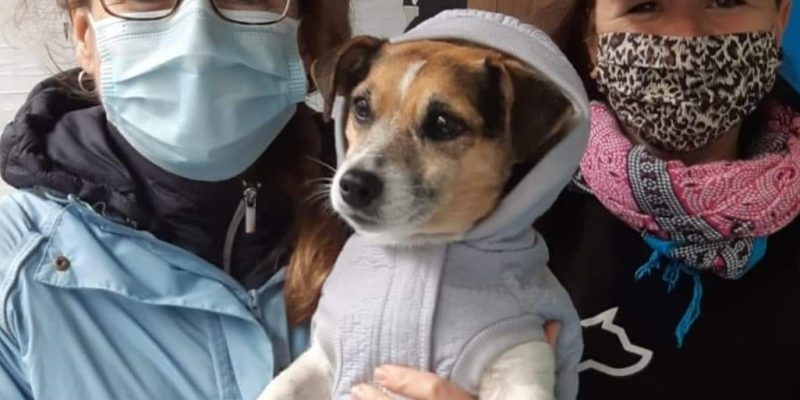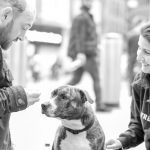Organisations across the UK which help the homeless and their pets, say we ‘must break the stigma’ around homeless dog owners.
With COVID-related deaths now hitting over 100,000 people in the UK alone, the Government are trying to get people off the streets more than ever, but the solution isn’t as simple as housing the homeless in empty hotels.
Despite government efforts to accommodate the homeless since the launch of the ‘Everyone In’ scheme last March, UK veterinary accredited charities Dogs on the Streets and StreetVet have revealed that many homeless dog owners were unable to access accommodation, allowing their pets to reside with them.
Founding Director of Dogs on the Streets, Michelle Clark, has run outreach programmes for the homeless community in London for eight years. Speaking to Buzz, Michelle said: “We do a lot of animal housing advocacy. We go around hostels and housing associations explaining why we feel that dogs should be accepted into their services.
“In the first lockdown, we advised councils when they were putting homeless people into hotels but very few of them were accepting pets.”
The DOTS sanctuary foster dogs belonging to street homeless; homeless, or anyone especially through this pandemic, who may end up in hospital or temporary accommodation. Michelle said: “If they’ve got a dog and they’re worried about where their dog is going to go, they can feel secure knowing that we are a foster sanctuary only- we don’t re-home, unless sadly the owner passes away.
“At the moment we have 42 dogs in the sanctuary, with staff on hand 24/7 so the dogs receive round the clock veterinary care.”
Current statistics suggest over 300,000 people are currently classified as homeless in the UK, and between 5-25% of these people are homeless with a pet.
StreetVet are a UK charity with teams of veterinary-trained volunteers operating in 17 locations across the UK. Their #petsineveryhostel campaign prompted their success in launching a 10-points hostel accredited scheme back in May last year; equipping hostels across the UK with the tools and education needed to safely host the homeless and their K9 companions.
But with people still choosing their pets over shelter and continuing to reside on the streets, StreetVet are working to help change the public attitude towards the street-homeless owning pets in the first place.
Co-founder and clinical director of StreetVet, Jade Statt, told Buzz: “There’s a lot of judgment. At StreetVet we get asked the same three questions all the time.
“Why do they have dogs? Where do they get them from, and are they looking after them?
“I probably hadn’t thought about any of those questions when I first started doing this, but the answers are pretty clear.
“They have them for all the same reasons that we do, and most of them got their dogs before they were homeless so they are in their lives already.
“They’re doing the very best that they can and with the ability that they have and that is not something to be underestimated because the barriers that they face from staying with their dog and not giving them up are that they can’t access a house, they can’t access a hostel; they can’t access the doctors.”
“And if they’re not going to be separated because they can get off the street to avoid getting something that could kill them, I think that shows the strength of the bond.”
Before the COVID-19 pandemic, StreetVet had teams of veterinary volunteers operating an outreach to rough sleepers at least once a week, though the pandemic has meant volunteer numbers across the charities 17 locations is more varied due to home schooling and shielding pressures.
With COVID forcing the charity to change their approach to offering care and support to the homeless and their pets, Jade added that the pandemic had been beneficial in terms of how the public empathise with people who live with their pets on the streets. She said: “COVID has made people realise just how important their pets are, because there’s so many people that currently have nothing other than their dog or their cat at home.
“They’ve realised, actually, if I didn’t have this other friend/companion, member of my family, I would have been completely isolated.
“And then they look at people who are homeless and think, I get it now.”
The government has not yet announced plans to increase funding for the ‘Everyone In’ scheme, though it has been reported that the rough sleeping and housing minister, Kelly Tolhurst, has suggested that through existing government funding, and communications with local authorities, the government is reassured there are necessary localised plans in place to tackle the issue.
To find out more about the work of Dogs on the Streets or StreetVet, please visit their website.






 The ‘Toilet Circuit’
The ‘Toilet Circuit’